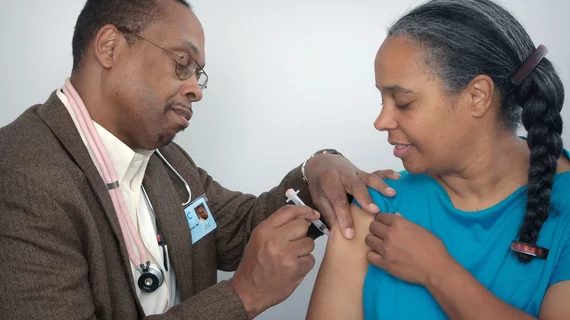Want to help the world win the war on COVID? Get a flu shot and encourage everyone within your sphere of influence to do the same.
Atul Nakhasi, MD, a policy advisor with the L.A. County Department of Health Services, urges the individual-level action in a piece published by ABC News.
Citing CDC estimates showing a bump of just 5% in the flu vaccination rate would avoid almost 483,000 infections, Nakhasi says that’s all it would take to make sure everyday hospital resources remain available for COVID patients throughout flu season.
And it’s those basic care components—not sophisticated epidemiological strategies—that will save the most lives from the pandemic should this season’s flu launch a simultaneous assault, Nakhasi asserts.
The core essentials include beds with oxygen, ventilators for anyone in respiratory distress, simple steroidal anti-inflammatory drugs and, not least, healthcare workers available for COVID duty and equipped with inexpensive N95 masks.
“The moment any of these precious resources become scarce, deaths could spiral out of control,” Nakhasi writes. “Social distancing, mask-wearing and herd immunity all may work to keep COVID in check, but why take additional risks when the only certainty is uncertainty?”
Nakhasi compares U.S. healthcare to the Titanic, which was believed seaworthy as long as no more than four of its bottom cabins remained unflooded.
“One thing we can [all help] unleash on this global pandemic … is our body’s ability to beat the flu,” he writes.
So it is, he concludes, that the flu shot can “keep our fifth cabin from filling and taking down the entire U.S. healthcare system with it.”

